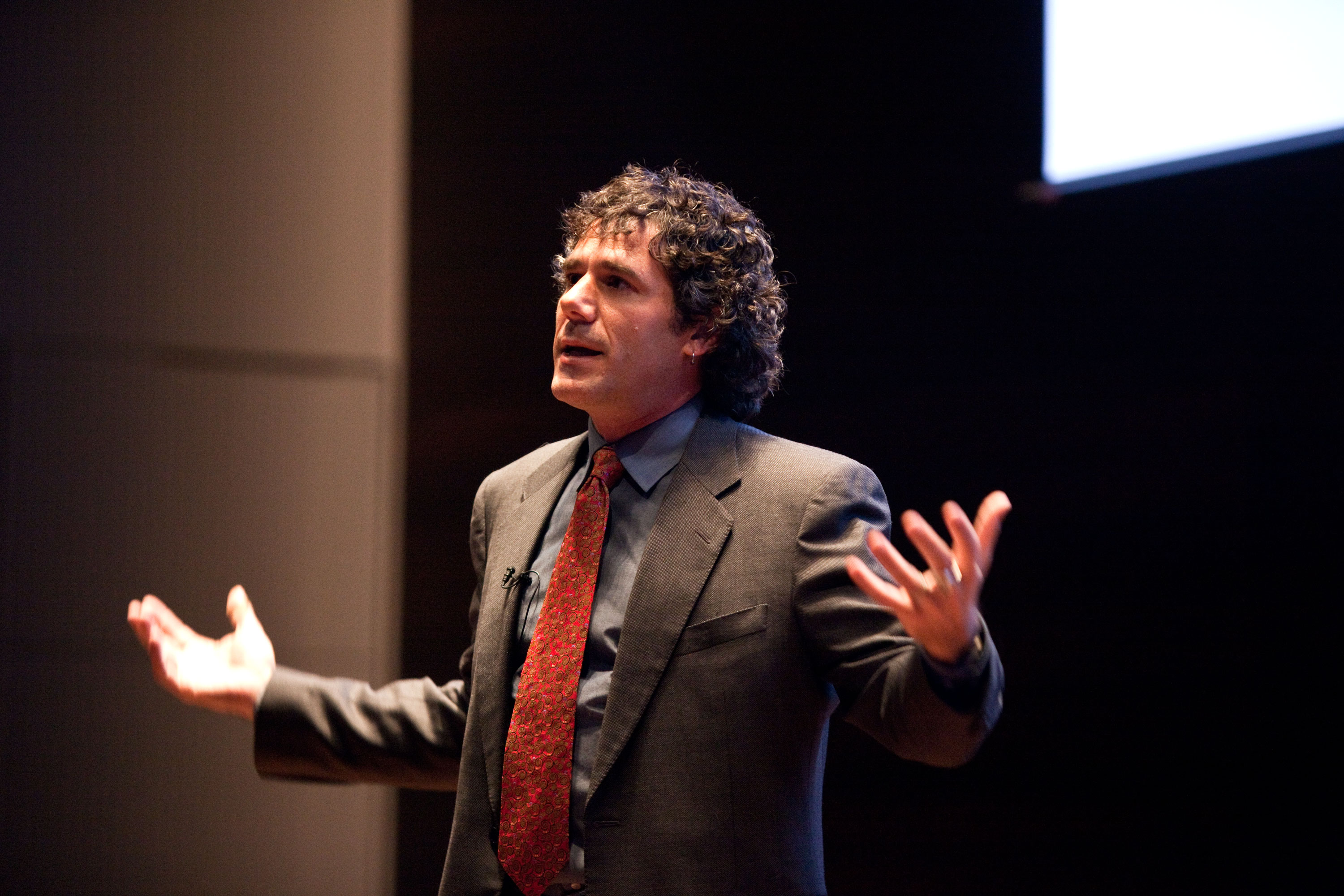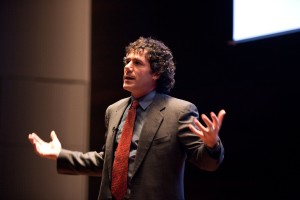Lessons from nature


“Adaptation is about leaving, or being forced from your comfort zone,” began Rafe Sagarin, an esteemed marine ecologist from the University of Arizona.
Sagarin’s lecture, which was titled Learning from the Octopus: Nature’s Lessons for Good Global Governance, informed a packed auditorium on the evening of Jan. 24 at the Centre for International Governance (CIGI). Sagarin started off by talking about his journey from the world of marine ecology to where he is now and how his career progression itself was a process of adaptation. He further lectured on issues dealing with the economy, politics and governance.
Sagarin based his lecture on several of the general rules derived from a meeting he had with experts from a variety of fields, from biology to international governance, where the question was posed, “What can we learn from nature about how to be adaptable?”
Nature, he explained, has far different responses to risk than humans. Illustrating this, he said, “The world is full of unpredictable risks, but a fish doesn’t try to turn a shark into a vegetarian. What I mean by that is the fish will do anything in its power to escape from that shark, it may even try to form a partnership with that shark, but it has no notion in its little fish brain that it is going to get rid of predation.”
Sagarin went on to contrast this approach to the inefficient way society tends to approach major obstacles and problems, using the reaction by states to 9/11 as an example. “We saw that a lot after 9/11, the war on terror, the war on drugs,” explained Sagarin.
He countered that people need to learn to live with risk, and despite the fact that it may sound passive, it is in reality what organisms have been doing for millions of years and there are many interesting strategies that can be derived from studying these organisms.
“Natural organisms do not plan, they do not predict and they don’t try to be perfect,” explained Sagarin. This runs counter to the traditional human approach of planning, predicting and optimizing for future outcomes.
Sagarin suggested that all an organism has to do to survive in nature is solve the problems presented before it. He contrasted this with the way bureaucracies like the government fail in terms of efficacy and organizational adequacy when compared to highly complex structures in nature.
“We tend, when we are under threat in society, to do the opposite,” Sagarin clarified. “For the United States, one of the biggest responses after 9/11 was creating this, the Department of Homeland Security. This is a highly centralized, top-down bureaucracy.”
Sagarin concluded with some advice for governments, asserting that moving from issuing orders to challenges is an important change to be made. ”
Giving orders is when a small group of experts or leaders, choose what’s best for all of us,” he said. “Issuing a challenge by contrast, is when a leader or a small leadership organization, says, ‘We are all facing a problem here, who among you can help us solve this problem?’”

